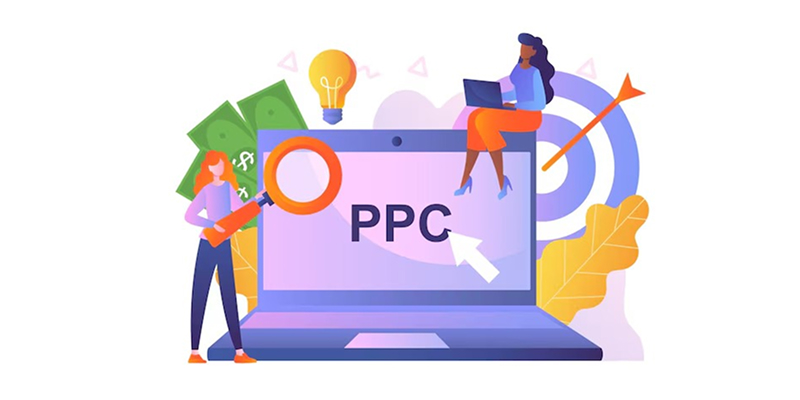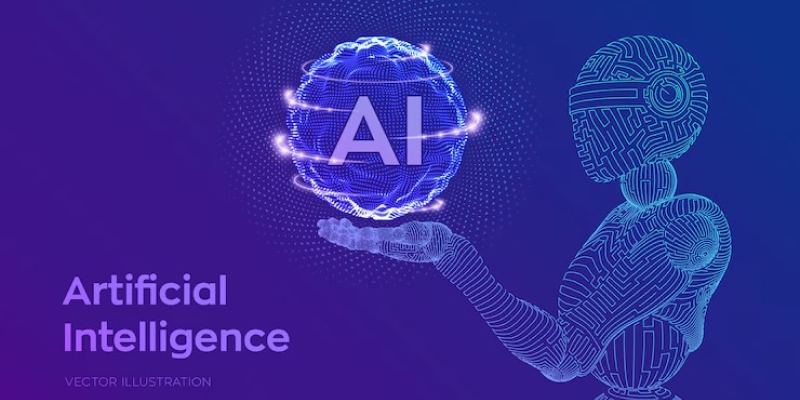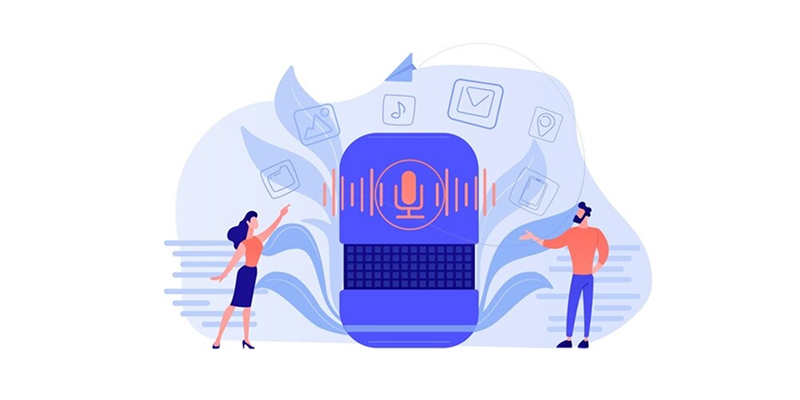

PPC advertising represents one of the fastest-moving areas within contemporary digital marketing. Businesses need to discover progressive techniques that boost the performance of their campaigns because algorithms constantly update and audience habits change alongside rising market competition. One of the most transformative technologies shaping the future of PPC advertising is Conversational AI in PPC.
During user interactions artificial intelligence (AI) and machine learning (ML) together with natural language processing (NLP) operate as one to improve automated communication methods. The technology enables fundamental customer interaction functions alongside lead creation and conversion rate growth. As PPC automation trends continue to evolve, the integration of Conversational AI marketing is proving to be a game-changer. In this blog, we’ll explore how AI-driven PPC strategies are revolutionizing digital advertising and why businesses must adopt them for success.
Devices that use technology called Conversational AI deliver capabilities to interpret and understand human language along with processing abilities. Consumers can access AI tools through chatbots and voice assistants and virtual agents as well as automated customer service services. Key components of Conversational AI in PPC include:
Natural Language Processing (NLP): Machines use this technology to understand spoken human communications.
Machine Learning (ML): AI learns new responses through user interactions making future productions better.
Speech Recognition & Text Analysis: AI devices can convert user statements through voice recognition alongside text inputs.
Automated Responses & Predictive Analytics: Enhances personalization and improves decision-making.
Since its entry into PPC campaigns, Conversational AI transforms how businesses connect with users through automated interactions. With these capabilities, Conversational AI marketing is reshaping the way businesses interact with users in PPC campaigns.
1. Enhancing Lead Generation & Conversion Rates
Users who consume traditional PPC ads observe landing page forms that frequently trigger high abandonment rates. Conversational AI in PPC, in the form of chatbots and virtual assistants, removes this friction by engaging users in real-time conversations.
How it Works:
AI-powered chatbots that operate on landing pages start personalized dialog systems after initial association.
AI chatbots obtain important data through their series of relevant queries directed at assessing potential leads.
The system instantly sends leads either to sales personnel or connects them directly to solutions.
By offering instant help, users can reach conversion goals faster since they avoid lengthy processes.
2. Personalization at Scale
Through intent analysis, Conversational AI achieves tailored interactions by sending personal responses to users. Unlike static PPC landing pages, Conversational AI marketing tailors conversations based on factors such as:
Search queries and keywords
User demographics
Past browsing behavior
Contextual preferences
When a user clicks to view luxury watch ads, AI chatbots automatically deliver personalized product choices together with exclusive promotional deals and side-by-side product comparisons.
3. 24/7 Customer Engagement & Support
Unlike human teams, Conversational AI in PPC operates 24/7, ensuring that PPC ad clicks always lead to immediate engagement. This is particularly beneficial for:
The target audience for this solution includes e-commerce organizations that encounter product inquiries.
Real estate marketing initiatives must provide readers with immediate access to specific residential information.
Through B2B lead generation processes, clients maintain ready qualification capabilities enabling businesses to contact prospects whenever needed.
By providing real-time assistance, Conversational AI marketing ensures businesses do not lose potential customers due to unavailability.

4. Reducing Wasted Ad Spend with Smart Targeting
A major challenge in the future of PPC advertising is ad budget wastage on unqualified leads. AI-driven PPC strategies minimize this issue by:
The system uses real-time qualification to weed out non-relevant traffic streams.
The system routes users with strong purchasing intention to particular services within the website.
The system analyzes user interactions to create better ad targeting systems.
The strategic selection of serious prospects allows businesses to reach the most profitable return on ad spend (ROAS) while decreasing expenses. PPC automation trends indicate that AI-driven targeting will continue to improve efficiency in budget allocation.
5. Optimizing PPC Campaigns with AI-Powered Insights
Conversational AI marketing tools provide valuable data and insights that help businesses refine their PPC strategies. These insights include:
User intent analysis
Keyword performance tracking
Frequently asked customer questions
Drop-off points in conversion funnels
By analyzing this data, marketers can fine-tune ad copy, adjust targeting strategies, and create more effective AI-driven PPC strategies.

6. Voice Search & Conversational PPC
Voice search has become prominent, so PPC advertisers must modify their techniques to process interactions while using natural language. Voice assistants that use artificial intelligence such as Siri, Google Assistant, and Alexa are transforming user interactions with search engine platforms.
Implications for PPC:
To maximize performance, advertisers need to optimize their targeting strategies to support natural language keywords with diverse search patterns.
The use of AI-powered chatbots enables systems to deliver responses that match users' demands when they perform voice search queries.
Consolidating purchases with PPC advertising becomes possible by using voice-enabled Conversational AI.
As voice commerce grows, integrating Conversational AI in PPC will be essential for capturing this evolving audience segment. PPC automation trends indicate that voice-enabled ads will become a significant part of future campaigns.
7. Improving Customer Retention & Lifetime Value
The ongoing engagement capabilities of Conversational AI both sustain new lead creation and strengthen customer retention. Features like:
The targeting system sends proactive outreach to past visitors of PPC advertisements.
The system will provide AI-powered suggestions founded on previous user engagements.
Automated communications engage potential leads to turn them into loyal repeat buyers.
This ensures that AI-driven PPC strategies are not just about acquiring new customers but also about maximizing the lifetime value (LTV) of existing ones.

1. E-commerce Brand Boosting Conversions - The fashion e-commerce company implemented an AI chatbot system into its Google Ads landing pages. Users benefited from the bot's ability to offer size guidance and style advice together with contactless payments. The result? The digital interface helped the company boost conversions by 35% and simultaneously reduce cart abandonment by 20%.
2. Real Estate PPC Campaign Optimization - Their PPC ad campaign featured AI-powered virtual assistants which the real estate firm deployed. Rather than lead capture forms, the chatbot system connected with visitors through real-time communication to respond to property inquiries and arrange site visits. A 50% surge was observed among qualified leads together with a 30% increase in overall client engagement.
3. B2B SaaS Lead Qualification - As the SaaS company operated LinkedIn PPC ads, they introduced AI-enabled chatbots for conducting lead pre-qualification. The platform's question sequence filtered high-quality leads to sales staff, which reduced acquisition expenses by 40% and increased booking figures by 25%.
The combination of Conversational AI technology with PPC advertising is developing quickly as studies forecast major growth potential. Here’s what we can expect in the near future:
Automated predictive PPC bid optimization system achieves maximum conversion rates.
Display ads deliver conversational interactions that engage directly with users.
Google Search Ads utilize integrated chatbots to deliver immediate customer engagement opportunities.
Voice advertisements use artificial intelligence to respond dynamically to user verbal inquiries.
Businesses that leverage AI-driven PPC strategies will gain a competitive edge by creating seamless, engaging, and high-converting PPC experiences. PPC services in Bangalore have seen significant improvements in customer engagement using AI-driven automation.
Conversational AI in PPC is no longer a futuristic concept—it’s a necessity for the future of PPC advertising. By enhancing lead generation, personalizing interactions, optimizing budget allocation, and improving customer retention, AI-driven chatbots and virtual assistants are redefining PPC automation trends. If you want to stay ahead in PPC automation trends, now is the time to integrate Conversational AI marketing into your advertising strategy.
Your PPC campaign performance will advance when you deploy AI automation for better engagements and ROI increases. The future of PPC advertising is conversational, intelligent, and AI-driven—are you ready to embrace it?